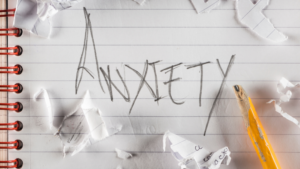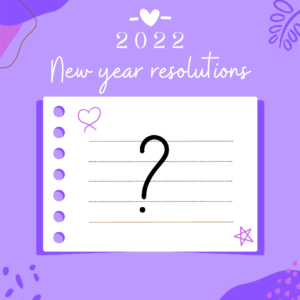Are You Ignoring This Key Relationship?
If you’re anything like a normal American, your schedule is probably busting at the seams due to all the things you’re trying to balance. If you’re not working (or worried about work), then you’re probably busy taking care of your family (my family is currently of the canine variety but she still need to be taken care of nonetheless). And don’t forget about trying to have a social life. Squeezing in time for a coffee date here or a long over-due phone call there just further strains our already busy lives. So why is it that something we do over 87,000 times in our lifetime is one of the first things we neglect when we start feeling the stress of our over-packed schedule?

- Locator / Foter / CC BY-NC-SA
Granted, in our fast-paced super-stressed out American lives, it makes sense that we try to stream-line as much as possible. But with 87,000 meals (eating 3 meals a day x 80 year lifespan = 87,600) that you are planning, preparing, and consuming over your lifetime, isn’t it just as important to have a healthy relationship with food as you would with a dear friend? Imagine inviting your friend over to spend quality time together and then just watching TV and completely ignoring them. Or worse still, forgetting to invite them over at all. How long do you think that relationship would last?
So let’s quickly evaluate your relationship with food. How often do you stop eating because you think you should, not because your body feels satisfied? Or do you feel guilty when you eat to the point that you are stuffed and uncomfortable? Do you usually pick foods based on their calorie content? Or do you watch what other people eat and use that to determine what and how much you will eat? If you answered yes to any of these questions, you probably want to re-evaluate your relationship with food. [The full quiz from The Renfrew Center can be found at the bottom of this article.]
Luckily for us, food usually has no say in the relationship, so no matter how many times you’ve been a bad friend to food, each meal is a new chance to start fresh. And if you fall back into your own abusive habits, food is able to forgive and forget. While you can’t just send food a bouquet of flowers with a “I’m Sorry” card, here are some practical tips to help repair your relationship with food.
Pay Attention to What Hunger Feels Like
We all experience different kinds of hunger. While we’re most familiar with the idea of being hungry for food, we also can be hungry for social interactions, have eye hunger (“My eyes were bigger than my stomach”) or even thirst can feel like hunger. So the next time you’re hungry, take a moment to notice where in your body you’re experiencing hunger. For example, if I feel “hunger” in my stomach, then I know I’m genuinely hungry for food. But if I feel “hunger” higher, up in my chest, I know that I’m probably anxious about something and want to eat as a way to distract myself.
Another good question to ask yourself when you feel hunger is “What do I really crave right now?” Maybe you’re feeling lonely after a long day at home and need to give a friend a call. Those potato chips were not what you wanted after all.
Practice Eating Mindfully
Does this sound familiar: “I’ll read through this report from work while I eat my lunch.” “I’ll catch up on some TV shows while I eat dinner.” How often do we make a meal and then eat while doing something else? I’m as guilty of this as the next person but after reading “Mindful Eating” by Jan Chozen Bays, I’ve been trying to eat at least one meal mindfully each day. Dr. Bays describes mindful eating as:
…an experience that engages all parts of us, our body, our heart, and our mind, in choosing, preparing, and eating food. Mindful eating involves all the senses. It immerses us in the colors, textures, scents, tastes and even sounds of drinking and eating. It allows us to be curious and even playful as we investigate our responses to food and our inner cues to hunger and satisfaction.
So as an experiment, for one meal this week, try eating mindfully. Sit at a table (no, not your couch, your desk, but an actual table) that is free from work papers, your computer, or any other distractions. Set the table as though you’re having guests over. This is an event to be celebrated! Once the food is on your plate, take a moment to smell the food. Notice the textures and colors of your food. Maybe even say grace or thanks to your food for providing nourishment to your body. I like to say “May this food give me the energy to do the work of love”.
Then take a bite. Notice what flavors are present initially and what flavors are present after a few bites. Notice how the texture changes as you chew. Notice how much you have to chew before your food is ready to swallow. Oh, did I mention you should chew? Once you’ve swallowed your food, notice how your hunger has changed, if at all. Take a few moments before you eat your next bite. Keep this mindfulness and awareness of your eating throughout the entire meal.
As I mentioned before, I’ve started trying to eat at mindfully for at least one meal a day since researching for this article and it has made eating such an enjoyable event. And I don’t know about you, but I won’t pass up a chance to add more joy to my life. Not only that, but I’ve noticed I eat less yet feel more satisfied and nourished after a meal.
Give Yourself Permission to Enjoy Eating
Even though marketers would like you to think differently, we only need a few things to live. Clean air to breathe, clean water to drink, food to nourish, sleep to restore, physical activity, and loving interactions. Thank goodness we really don’t have to think about breathing (well, don’t get me started on air pollution or belly breathing) but the other building blocks of life obviously take some effort. So why feel guilty about something that you literally have to do in order to live? Your body is programmed to signal and let you know “Hey, we need some fuel over here!” so feeling guilty for a natural process is not adding anything beneficial to your life. However, if this is a deeply ingrained thought pattern, counseling may be a consideration to overcome this.
And so what if you have a cookie a few times a week because you want one? I constantly tell people how important moderation is when it comes to eating. I’d rather eat one or two cookies today, and really enjoy eating those cookies, than to deny myself those cookies, feel guilty for wanting to eat them, and then binge eat an entire pack of cookies in a month from now when I just can’t take it anymore. It’s ok to indulge your cookie monster (or ice cream monster or whatever inner monster is there) once in a while and keep her [or him] happy if you’re eating good foods the majority of the time. Mental health and physical health go hand in hand so the happiness and joy you get from eating a cookie that reminds you of your grandmother’s baking may sometimes outweigh the detrimental effects of the sugar you ate. It’s all about balance.
So try implementing a few of these tips, or just one, into your day-to-day life and pay attention to how your relationship with food has changed. As always, feel free to share your experience below. Which one tip do you think will be the most easy to implement? Which one would be the hardest?
Stay Radiant,
Dr. Russell



